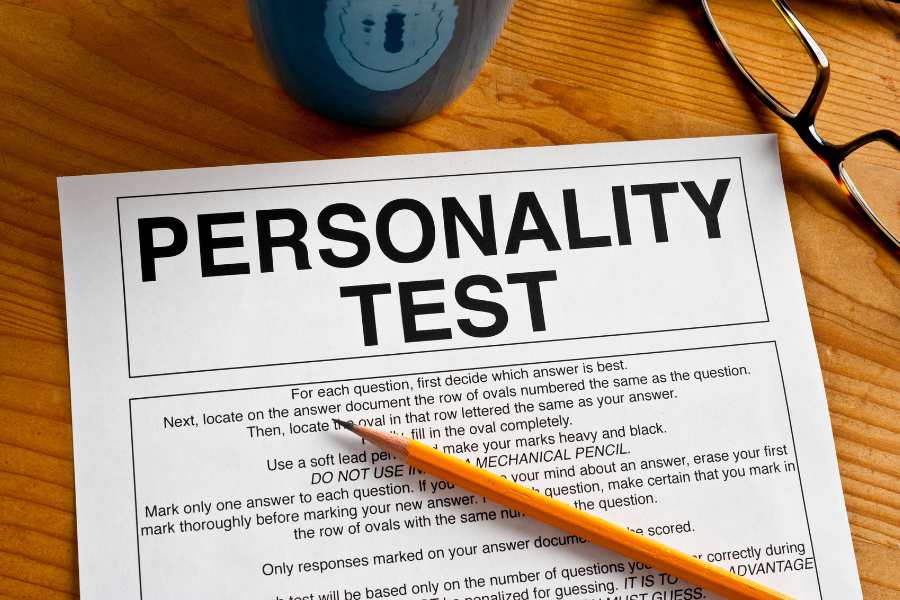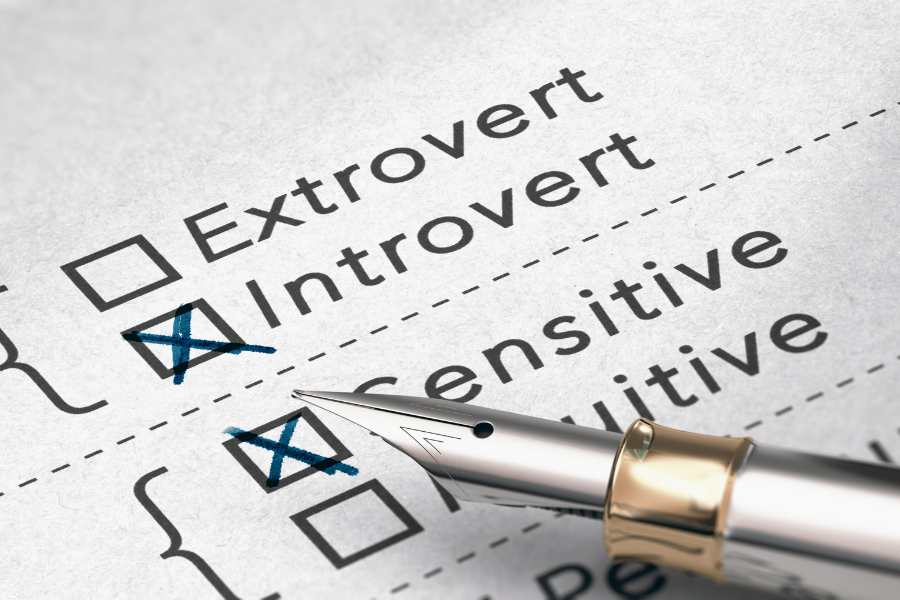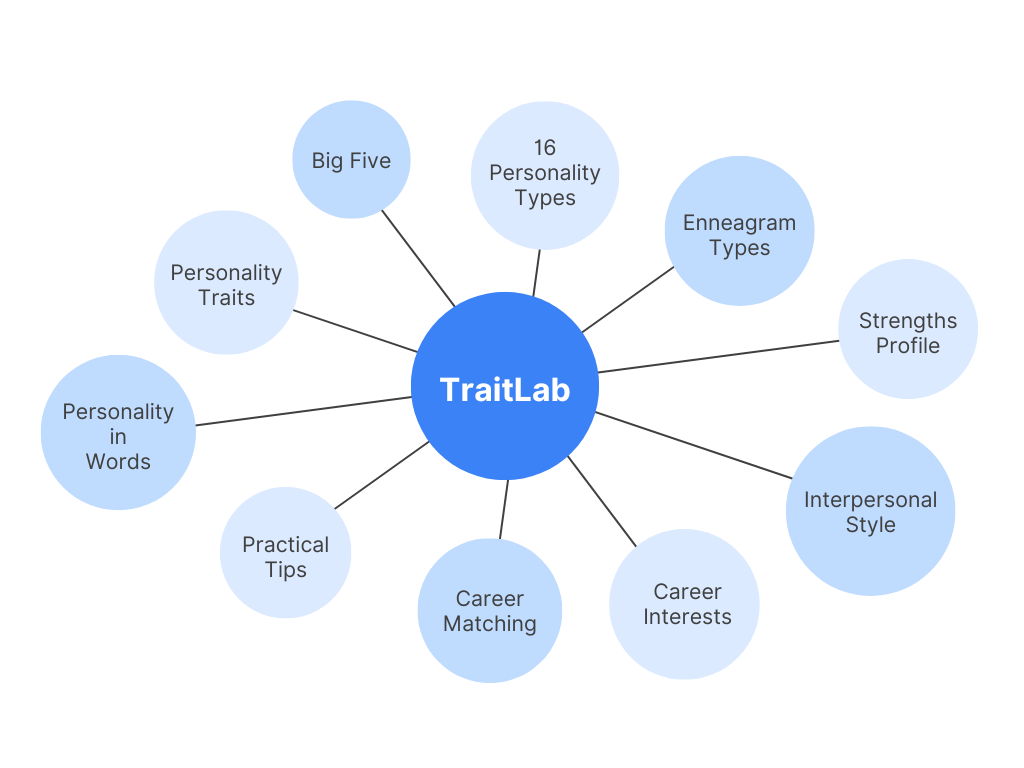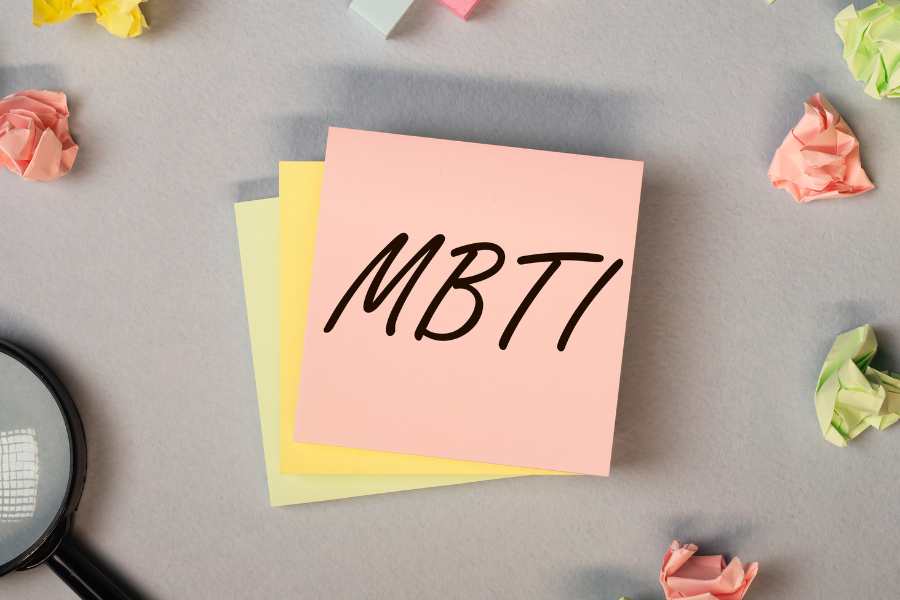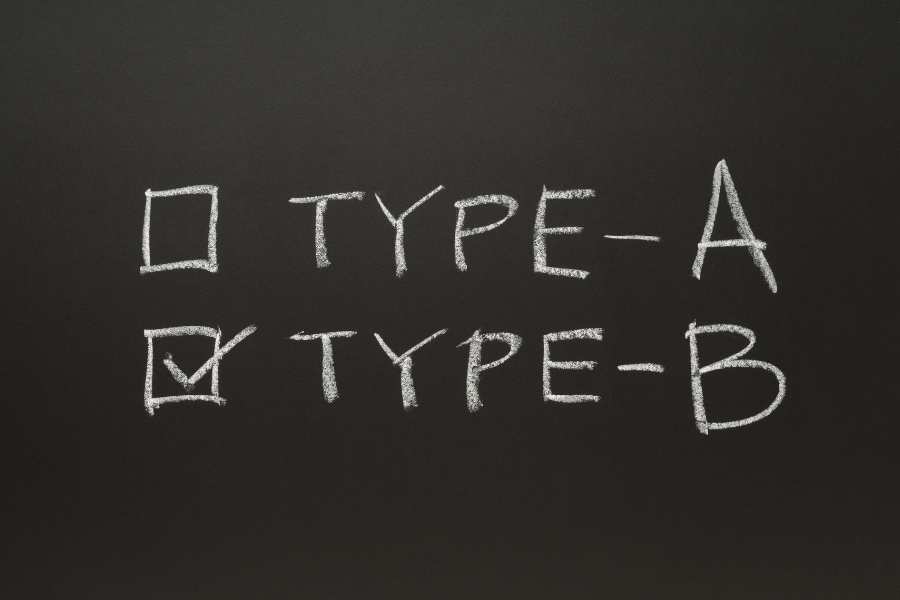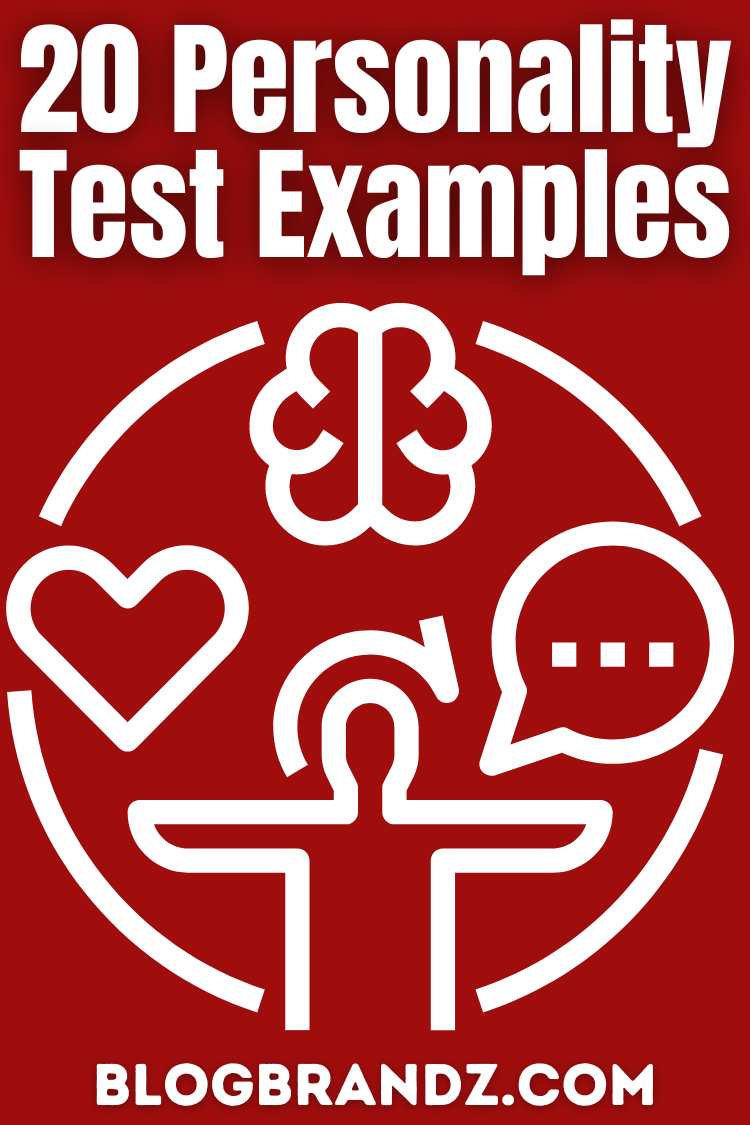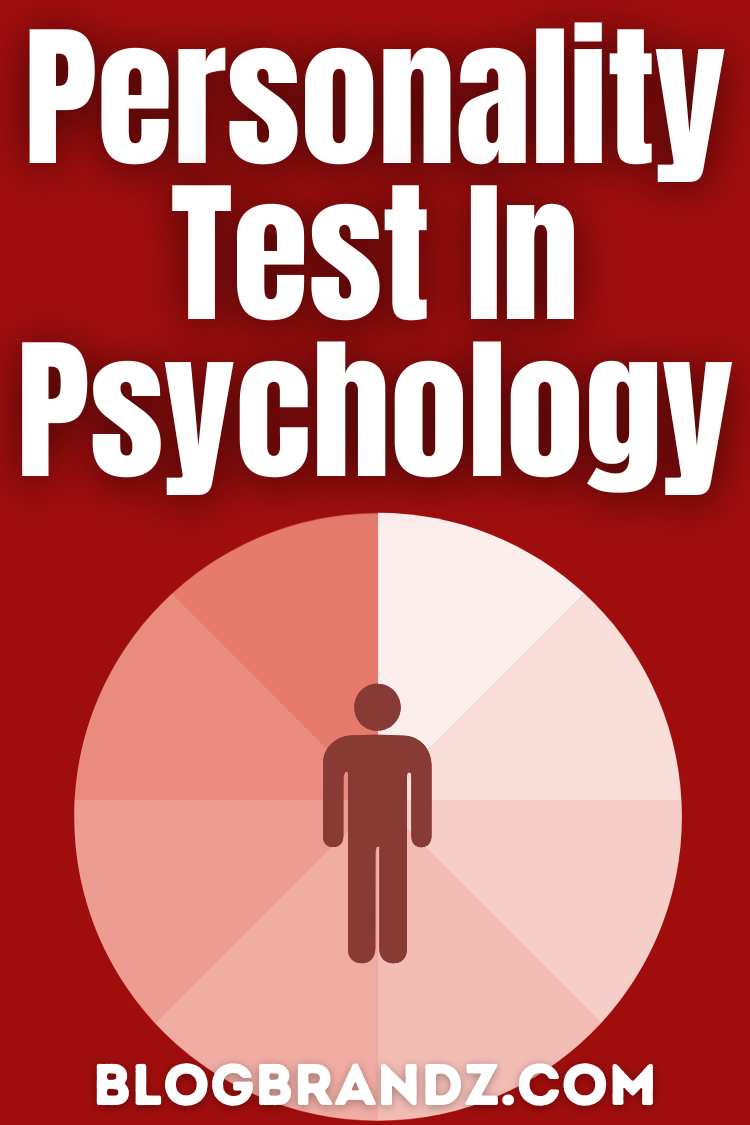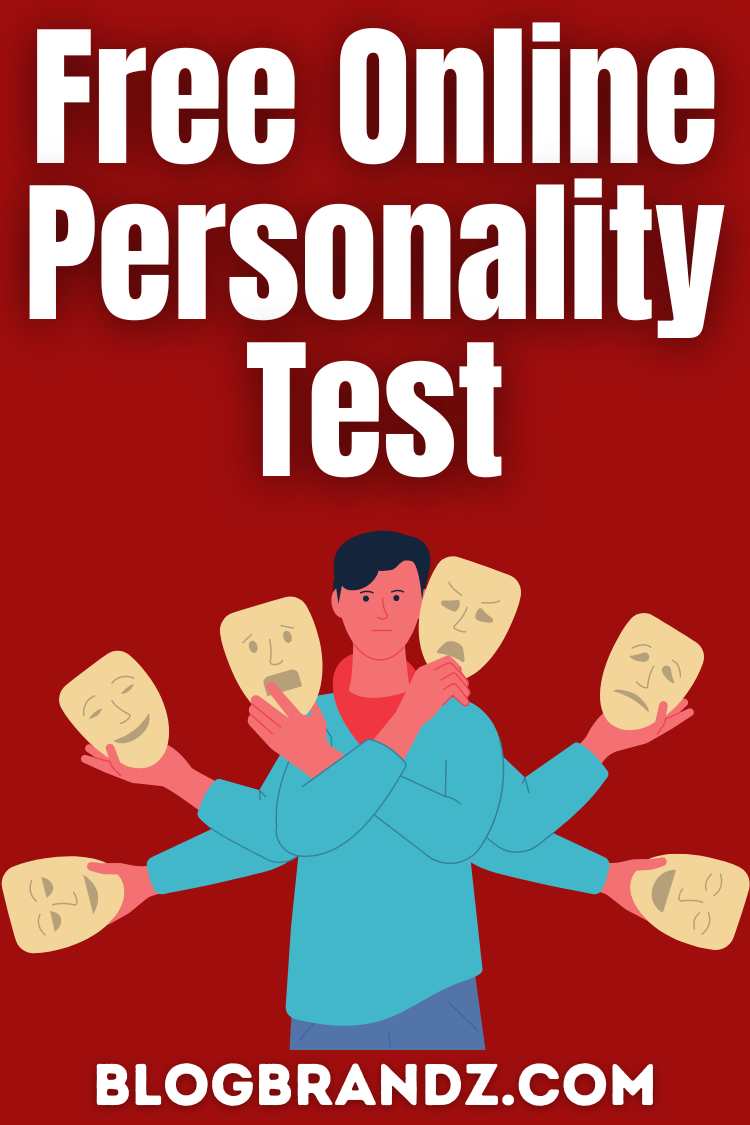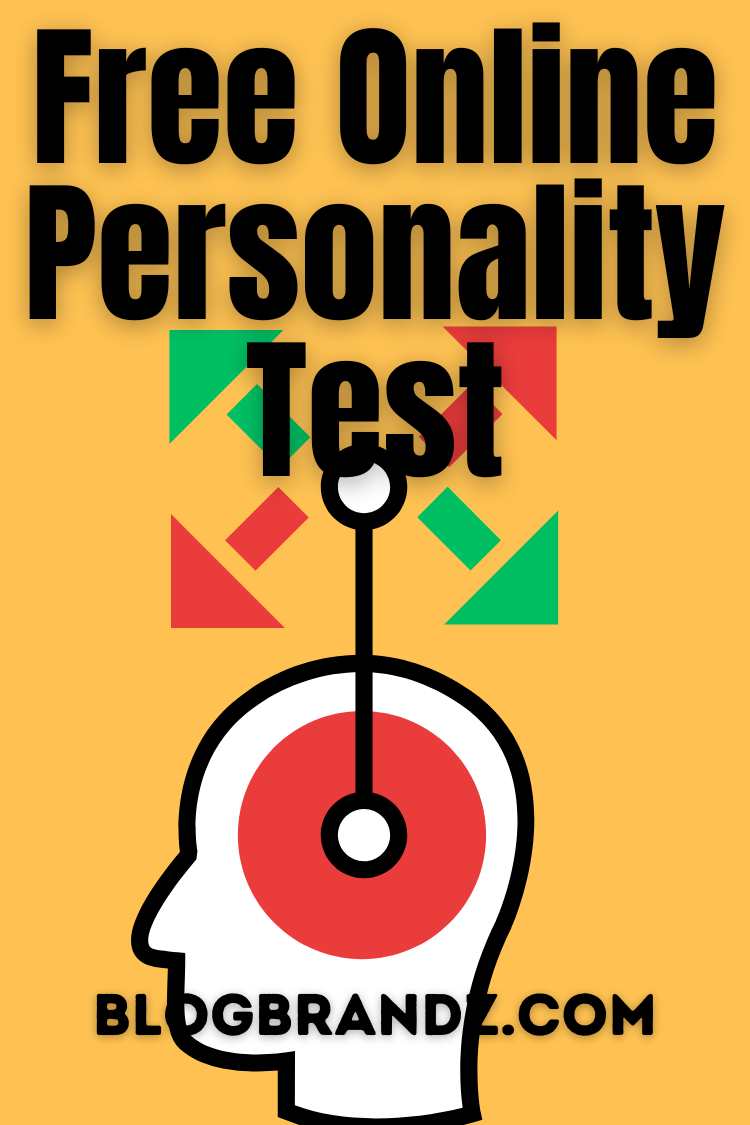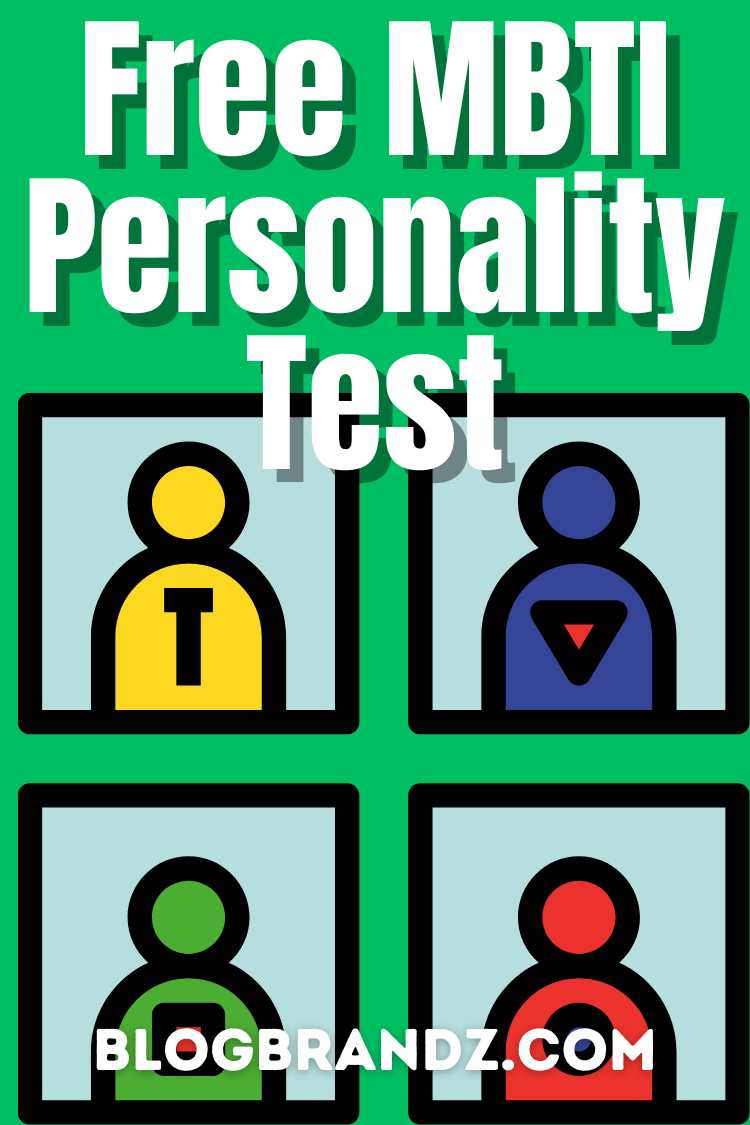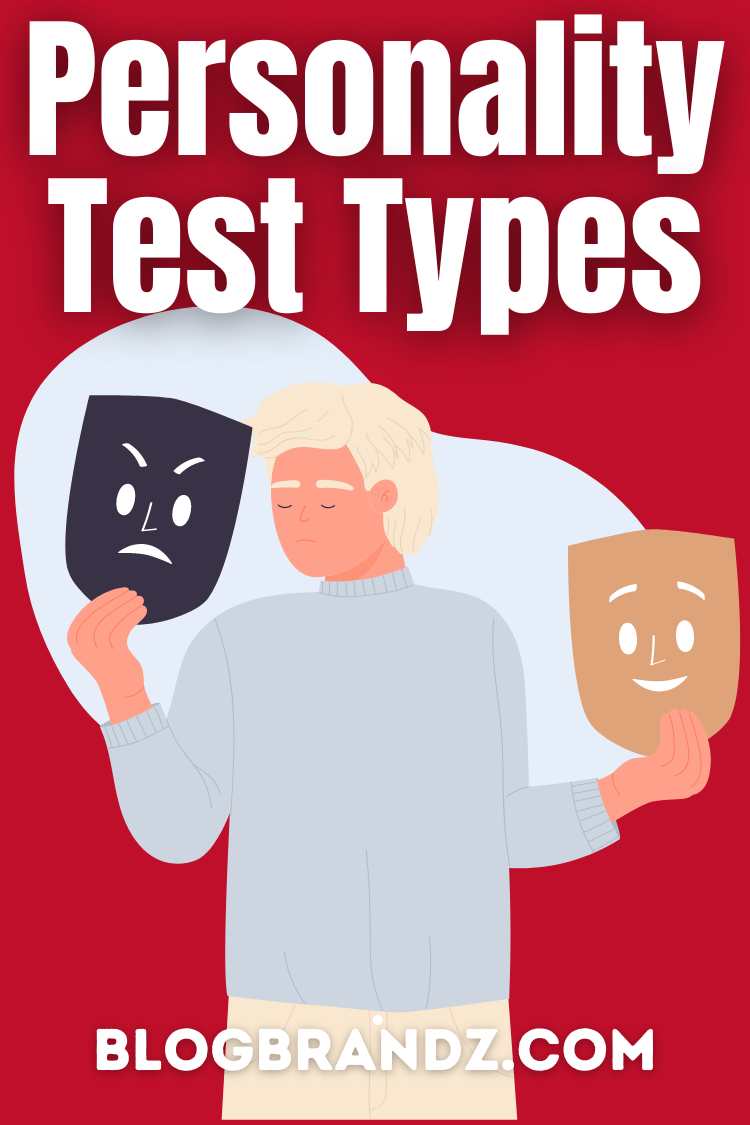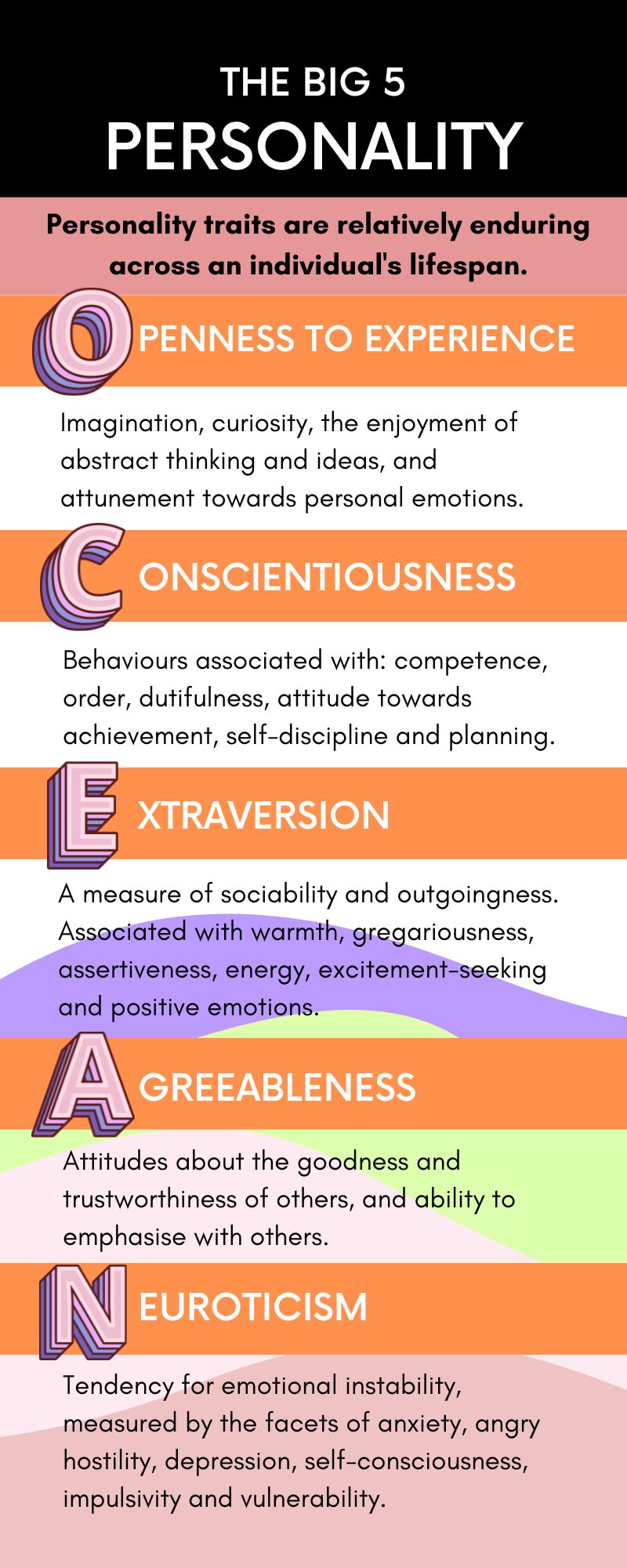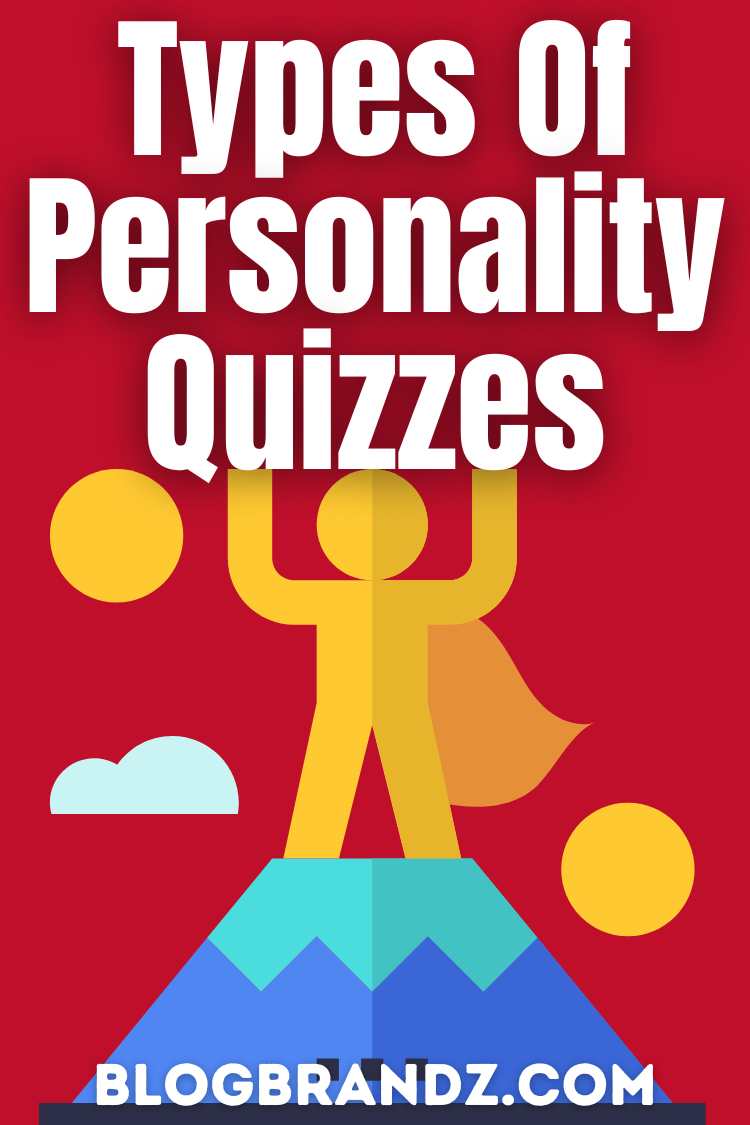Unlock your potential with a free personality test. Learn about personality types, personality traits, your innate strengths, and areas for growth.
Personality is a complex and multifaceted aspect of human identity, influencing how we think, feel, and behave in various situations. Understanding one’s personality type is not only intriguing but also crucial for personal growth and development.
A personality test in psychology is designed to assess different personality types, and offer valuable insights into our innate personality traits, strengths, behaviors, and preferences, providing valuable insights into an individual’s unique personality profile.
By unlocking the mysteries of our personality, these tests can help us navigate life’s challenges, make informed decisions, and realize our full potential. In this article, we explore how different types of personality quizzes can be powerful tools for self-discovery and personal transformation.
Contents
- Personality Types Vs Personality Traits
- 8 Benefits Of Personality Tests
- TraitLab’s Free Personality Test
- 20 Types Of Personality Tests
- #1. MBTI Personality Test
- #2. Big Five Personality Test
- #3. DiSC Personality Test
- #4. 16PF Personality Test
- #5. Holland Codes (RIASEC)
- #6. Enneagram Personality Test
- #7. StrengthsFinder
- #8. CliftonStrengths
- #9. Jungian Typology
- #10. Keirsey Temperament Sorter
- #11. California Psychological Inventory (CPI)
- #12. MMPI Test
- #13. Eysenck Personality Inventory (EPI)
- #14. NEO Personality Inventory (NEO-PI)
- #15. Strengths-based Leadership Assessment
- #16. Values Assessment
- #17. FIRO-B Test
- #18. Motivational Assessment
- #19. Color Personality Test
- #20. Type A/B/C/D Personality Test
- Career Tips & Tools
Personality Types Vs Personality Traits
Personality types and personality traits are concepts used to describe and categorize different aspects of an individual’s personality. While they are related, they represent slightly different approaches to understanding personality.
Personality Types
Personality types are broad categories into which individuals are grouped based on shared characteristics, behaviors, and tendencies.
These types are often used in frameworks like the Myers-Briggs Type Indicator (MBTI) or the Enneagram, which categorizes individuals into distinct types or categories.
Each type is characterized by a unique combination of traits and tendencies, and people within the same type are believed to share certain fundamental similarities in their approach to the world and their interactions with others.
Personality Traits
Personality traits, on the other hand, are specific characteristics or qualities that describe an individual’s behavior, attitudes, and tendencies across various situations. Traits are thought to be relatively stable over time and consistent across different contexts.
Traits are often measured along continua, such as the Big Five personality traits (Openness, Conscientiousness, Extraversion, Agreeableness, Neuroticism), which are considered the five fundamental dimensions of personality.
In summary, personality types categorize individuals into broad, overarching categories based on shared characteristics, while personality traits describe specific, stable characteristics that define an individual’s personality.
Both concepts are used to understand and describe the complexities of human personality, but they represent different levels of analysis and granularity.
8 Benefits Of Personality Tests
Personality tests can offer several benefits, depending on the context and purpose of taking the test. Some of the key benefits include:
#1. Self-awareness
Self-awareness is a key component of personal growth and development. Personality tests offer a structured way to gain insights into one’s personality traits, behaviors, strengths, and weaknesses.
By understanding these aspects of oneself, individuals can make more informed decisions, set realistic goals, and improve their relationships and overall well-being.
This increased self-awareness can lead to greater personal fulfillment and a deeper understanding of one’s place in the world.
#2. Career Guidance
Personality tests can be valuable tools for career guidance, helping individuals identify suitable career paths based on their personality traits and preferences.
For example, the Holland Codes categorize individuals into six personality types (Realistic, Investigative, Artistic, Social, Enterprising, and Conventional) and suggest career options that align with each type.
Similarly, the Myers-Briggs Type Indicator (MBTI personality test) categorizes individuals into 16 personality types, each with its own set of strengths and preferences that can be matched to specific career paths.
By taking these tests, individuals can gain insights into their natural inclinations and interests, which can inform their career decisions and lead to greater job satisfaction and success.
#3. Relationship Insights
A personality type test can provide valuable insights into how individuals relate to others, improving their interpersonal relationships.
By understanding their personality traits, individuals can better comprehend their communication styles, emotional responses, and behavioral patterns. This self-awareness enables them to adapt their interactions with others, leading to more effective and harmonious relationships.
Additionally, personality tests can help individuals understand the personalities of their family members, friends, and colleagues, fostering empathy, tolerance, and mutual respect. This deeper understanding can lead to stronger, more fulfilling relationships in all areas of life.
#4. Team Building
Personality tests can play a crucial role in team building, particularly in the workplace. By assessing the personality types and traits of team members, leaders can create teams that are diverse in terms of personalities and skill sets.
This diversity can lead to more innovative thinking, better problem-solving, and improved team dynamics. Personality tests can also help team members understand each other better, leading to increased empathy, collaboration, and communication.
Overall, using personality tests as a tool for team building can result in more effective and cohesive teams that are better equipped to achieve their goals.
#5. Conflict Resolution
Conflict resolution can be greatly enhanced through an understanding of personality traits. By recognizing their tendencies and those of others, individuals can approach conflicts with greater empathy and understanding.
For example, someone who values harmony and avoids confrontation might approach a conflict differently than someone more assertive. Personality tests can provide insights into these differences, helping individuals navigate conflicts more effectively.
By understanding the underlying reasons for disagreements and recognizing the perspectives of others, individuals can find more constructive ways to resolve conflicts and maintain harmonious relationships.
#6. Personal Development
Personality tests can be valuable tools for personal development, providing insights that can guide individuals in improving various aspects of their lives.
For example, by understanding their personality traits, individuals can identify areas for improvement, such as communication skills or stress management techniques. They can then use this information to set specific goals and develop strategies for growth.
Additionally, a personality test can highlight strengths that individuals can further develop, such as leadership abilities or creativity. Overall, personality tests can serve as a springboard for personal growth, empowering individuals to become the best versions of themselves.
#7. Goal Setting
Personality traits play a significant role in goal setting. By understanding their traits, individuals can set goals that are realistic and achievable, based on their strengths and values.
For example, a highly conscientious person may set goals that require meticulous planning and organization, while someone more extroverted may set goals that involve networking and social interaction.
Personality quizzes can help individuals identify these traits and use them to their advantage in goal setting. This approach can lead to greater motivation, satisfaction, and success in achieving their goals.
#8. Career Advancement
Understanding one’s personality is crucial for career advancement. By recognizing their strengths and weaknesses, individuals can identify areas for improvement and development.
For example, someone who is introverted may work on improving their networking skills, while someone detail-oriented may focus on developing their ability to see the big picture.
Additionally, understanding one’s personality can help individuals identify career paths that align with their strengths and interests, leading to greater job satisfaction and success.
Overall, personality plays a significant role in career advancement, and individuals who take the time to understand their traits are better positioned to achieve their professional goals.
Overall, personality quizzes can provide valuable insights and serve as a tool for self-improvement, personal development, and enhancing relationships, both personally and professionally.
TraitLab’s Free Personality Test
TraitLab’s Free Personality Test offers incredibly detailed, comprehensive, scientific personality assessments to help you learn your personality traits, clarify your career interests, and identify your strengths.
The TraitLab personality test offers a comprehensive analysis of your personality traits, including 45+ traits and 16 personality types, along with Enneagram insights. It also provides a strengths profile, career interests analysis, and the ability to match and compare over 700 career paths.
Built by a Ph.D. research psychologist to help you sharpen your self-knowledge, it uses assessments and concepts from actual scientific research and then makes it easy to see how your results relate to important life areas.
TraitLab’s Free Personality Test will help you sort hundreds of career paths by your unique personality match, salary, and education, and learn the common patterns between the types of careers that fit you well and those that don’t.
- Your TraitLab account includes:
- Personality trait analysis (45+ traits)
- Personality typologies (16 personality types + Enneagram)
- Strengths profile
- Career interests analysis
- Career matching and comparisons (700+ career paths)
- Ability to reset/retake assessment monthly
- Public profile with custom username/link (for easy sharing)
Dive deep into the details of any career path, and see how your personality profile aligns with it. For every career path, learn about common day-to-day tasks, psychological demands, required training and expertise, salary ranges, and much more.
You can reset or retake TraitLab’s Free Personality Test monthly and have a public profile with a custom username/link for easy sharing. Dive deep into the details of any career path to see how your personality profile aligns with it.
Explore common day-to-day tasks, psychological demands, required training and expertise, salary ranges, and more to make informed decisions about your career path.
20 Types Of Personality Tests
There are various types of personality tests used in psychology and personal development. Here’s a list with brief descriptions for each:
#1. MBTI Personality Test
The MBTI personality test assesses personality based on four dichotomies, resulting in 16 personality types.
Origin:
The Myers-Briggs Type Indicator (MBTI) was developed by Isabel Briggs Myers and her mother, Katharine Cook Briggs, based on the theories of Carl Jung.
They sought to create a tool that could help people understand themselves and others better, ultimately leading to more fulfilling and productive lives.
Benefit:
The MBTI personality test offers a framework for understanding personality that can be used in various contexts, such as personal development, career counseling, and team building.
By categorizing individuals into 16 different personality types based on four dichotomies (Extraversion vs. Introversion, Sensing vs. Intuition, Thinking vs. Feeling, and Judging vs.
Perceiving), the MBTI provides insights into how people perceive the world, make decisions, and interact with others. This understanding can lead to improved self-awareness, better communication, and more effective interpersonal relationships.
Case Use:
For example, in a career counseling setting, the MBTI can help individuals identify suitable career paths based on their personality type.
An introverted, intuitive, thinking, and judging (INTJ) individual, for instance, may be well-suited for a career in strategic planning or research, where they can use their analytical skills and visionary thinking.
In a team setting, knowing team members’ MBTI types can help leaders create diverse and balanced teams that leverage each member’s strengths and preferences.
Overall, the MBTI personality test is a valuable tool for personal and professional development, offering insights that can lead to greater self-awareness, fulfillment, and success.
#2. Big Five Personality Test
The Big Five personality test measures five broad factors of personality, often referred to as the OCEAN model. Here’s a list of the five factors measured on the Big Five personality test:
Openness to Experience:
This factor measures a person’s openness, imagination, and willingness to try new things. People high in this trait tend to be creative, adventurous, and open-minded, while those low in openness may be more conventional and prefer routine.
Conscientiousness:
This factor measures how organized, responsible, and reliable a person is. People high in conscientiousness tend to be diligent, detail-oriented, and dependable, while those low in conscientiousness may be more careless and spontaneous.
Extraversion:
This factor measures a person’s sociability, assertiveness, and tendency to seek stimulation in the company of others. People high in extraversion tend to be outgoing, talkative, and energetic, while those low in extraversion may be more reserved and prefer solitude.
Agreeableness:
This factor measures how compassionate, cooperative, and trusting a person is. People high in agreeableness tend to be empathetic, friendly, and helpful, while those low in agreeableness may be more competitive and skeptical.
Neuroticism:
This factor measures a person’s emotional stability and tendency to experience negative emotions such as anxiety, depression, and anger. People high in neuroticism tend to be more prone to mood swings and worry, while those low in neuroticism are more emotionally stable and resilient.
Origin:
The Big Five Personality Traits, also known as the Five-Factor Model (FFM), emerged from decades of research in psychology to identify and categorize the fundamental dimensions of personality.
Developed independently by several researchers, including Lewis Goldberg and Warren Norman, the Big 5 personality test has become one of the most widely used and accepted frameworks for understanding personality.
Benefit
The Big Five personality test, or OCEAN personality test, provides a comprehensive and scientifically validated framework for understanding personality.
By measuring five broad dimensions of personality – Openness, Conscientiousness, Extraversion, Agreeableness, and Neuroticism (often remembered by the acronym OCEAN) – the Big Five model offers a nuanced view of individual differences.
These dimensions can help predict behavior, preferences, and outcomes in various contexts, from career choices to interpersonal relationships.
Case Use
For example, in a workplace setting, understanding an employee’s Big Five personality traits can inform hiring decisions, team composition, and leadership approaches.
A highly conscientious individual might excel in roles that require attention to detail and adherence to procedures, while a more extroverted person might thrive in positions that involve social interaction and networking.
By using the Big Five model, organizations can better understand their employees, optimize team dynamics, and foster a more productive and harmonious work environment.
#3. DiSC Personality Test
The DiSC Personality Test assesses personality based on four main traits: Dominance, Influence, Steadiness, and Conscientiousness.
Origin:
The DiSC Personality Test is based on the work of psychologist William Marston and his book “Emotions of Normal People,” published in 1928. It was later developed into the DiSC model by industrial psychologist Walter V. Clarke.
Marston’s DISC theory identifies four primary behavioral traits: Dominance, Influence, Steadiness, and Conscientiousness. These traits form the basis of the DISC assessment, which is used to understand individual personality styles and how they influence behavior.
Benefit:
The DiSC assessment categorizes individuals into four main personality traits: Dominance, Influence, Steadiness, and Conscientiousness.
By identifying which of the four traits—Dominance, Influence, Steadiness, or Conscientiousness—a person exhibits most prominently, the DISC assessment can help individuals gain insights into their communication styles, work preferences, and interpersonal dynamics.
By understanding these traits, individuals can gain insights into their communication styles, work preferences, and behavioral tendencies. This can lead to improved self-awareness, better teamwork, and more effective leadership.
Case Use:
For example, in a team setting, knowledge of team members’ DiSC profiles can help improve communication and collaboration.
A team leader who understands that one team member is high in Dominance and another is high in Steadiness can adjust their approach to provide the right level of direction and support to each individual.
Similarly, in a sales or customer service role, understanding a client’s DiSC profile can help tailor communication strategies to better meet their needs and preferences.
Overall, the DiSC personality test is a valuable tool for improving interpersonal relationships and enhancing team performance.
#4. 16PF Personality Test
Measures 16 primary factors of personality, including warmth, reasoning, emotional stability, dominance, and more.
Origin:
The 16PF (Sixteen Personality Factor Questionnaire) was developed by Raymond Cattell in the 1940s and 1950s as a way to measure the various dimensions of personality. It is based on his factor analysis research, which identified 16 primary factors of personality.
Cattell believed that personality could be understood through a combination of different traits, which he referred to as the “source traits.” The 16PF personality test is based on the idea that these source traits can be grouped into 16 primary factors, each representing a different aspect of personality.
Benefit:
The 16PF provides a detailed and comprehensive assessment of an individual’s personality. By measuring 16 primary factors, including warmth, reasoning, emotional stability, dominance, and more, the 16PF personality test can offer insights into a wide range of personality traits and characteristics.
This can be useful in various contexts, such as personal development, career counseling, and psychotherapy, where a deeper understanding of an individual’s personality can lead to more effective interventions and outcomes.
Case Use:
In a career counseling setting, the 16PF can help individuals identify their strengths and weaknesses, as well as potential career paths that align with their personality traits.
A person high in emotional stability and dominance, for instance, might be well-suited for a leadership role that requires making tough decisions under pressure.
An individual who scores high on the factor of Extroversion may be more outgoing and sociable, while someone who scores high on the factor of Emotional Stability may be more resilient to stress and less prone to anxiety.
Similarly, someone who scores high on the factor of Tough-mindedness may be more skeptical and critical, while someone who scores high on the factor of Warmth may be more empathetic and compassionate.
In a therapeutic setting, the 16PF personality test can help therapists tailor their approach to better meet the needs of their clients based on their personality profiles.
#5. Holland Codes (RIASEC)
Identifies career interests based on six personality types: Realistic, Investigative, Artistic, Social, Enterprising, and Conventional.
Origin:
The Holland Codes, also known as the RIASEC model, were developed by psychologist John L. Holland in the 1950s. Holland’s theory suggests that people can be categorized into one of six personality types based on their interests and preferences.
Benefit:
The Holland Codes provide a framework for understanding how individual personality types relate to career choices.
By identifying which of the six types—Realistic, Investigative, Artistic, Social, Enterprising, or Conventional—a person aligns with most, individuals can gain insights into suitable career paths that match their interests and strengths.
Case Use:
For example, a person who scores high in the Artistic type might excel in creative fields such as graphic design or music, while someone who aligns more with the Enterprising type might thrive in roles that involve leadership and persuasion, such as sales or entrepreneurship.
By using the Holland Codes, individuals can make more informed decisions about their career paths, leading to greater job satisfaction and success.
#6. Enneagram Personality Test
The Enneagram personality test divides personality into nine interconnected types, each representing a core motivation or worldview.
Origin:
The Enneagram is an ancient personality typing system that has been used for centuries to understand human behavior and motivations. It was popularized in the West in the 20th century and has since become a widely used tool for self-discovery and personal growth.
Benefit:
The Enneagram provides a holistic framework for understanding personality, focusing on nine interconnected types, each representing a core motivation or worldview.
By identifying one’s Enneagram type, individuals can gain deep insights into their fears, desires, and motivations, helping them understand why they think, feel, and behave in certain ways.
Case Use:
For example, an individual who identifies as Type 1 (The Reformer) may have a strong inner critic and strive for perfection, while someone who identifies as Type 7 (The Enthusiast) may seek new experiences and avoid pain or discomfort.
By understanding these core motivations, individuals can develop greater self-awareness and work towards personal growth and transformation. The Enneagram personality test can also be used in interpersonal relationships and team dynamics to improve communication, empathy, and understanding.
#7. StrengthsFinder
Identifies individuals’ top strengths out of 34 themes, focusing on what they naturally do best.
Origin:
The StrengthsFinder personality test is based on the research of psychologist Donald O. Clifton and his colleagues at Gallup.
It emerged from the Positive Psychology movement and is designed to help individuals identify and develop their natural talents and strengths.
Benefit:
StrengthsFinder identifies individuals’ top strengths out of 34 themes, focusing on what they naturally do best.
By recognizing and leveraging these strengths, individuals can increase their effectiveness, satisfaction, and success in various aspects of their lives, including work, relationships, and personal development.
Case Use:
For example, an individual who excels in the “Strategic” theme might be able to see patterns and connections that others miss, making them valuable in roles that require problem-solving and innovation.
Similarly, someone with a strong “Empathy” theme might excel in roles that require understanding and connecting with others, such as counseling or customer service.
By focusing on developing their top strengths, individuals can achieve greater fulfillment and impact in their lives.
#8. CliftonStrengths
Similar to StrengthsFinder, CliftonStrengths identifies individuals’ unique talents among 34 themes.
Origin:
CliftonStrengths is a strengths assessment tool developed by Gallup, based on the research of psychologist Donald O. Clifton. It is designed to help individuals discover and develop their natural talents and strengths to improve performance and engagement.
Benefit:
CliftonStrengths identifies individuals’ unique talents among 34 themes, providing a personalized report that highlights their top strengths.
By focusing on developing these talents, individuals can increase their self-awareness, confidence, and effectiveness in various areas of their lives, including work, relationships, and personal growth.
Case Use:
For example, an individual who excels in the “Achiever” theme might have a strong drive to accomplish goals and be highly productive, making them well-suited for roles that require high levels of motivation and performance.
Similarly, someone with a strong “Relator” theme might excel in building and maintaining deep, meaningful relationships, making them valuable in team settings.
By understanding and leveraging their unique talents, individuals can achieve greater success and satisfaction in their lives.
#9. Jungian Typology
Based on Carl Jung’s theory, it categorizes individuals into four main personality types: thinking, feeling, sensation, and intuition.
Origin:
Jungian Typology is based on the theories of Swiss psychiatrist Carl Jung, who proposed that individuals can be categorized into four main personality types based on their dominant psychological functions.
Benefit:
Jungian Typology provides a framework for understanding personality that focuses on four main functions: thinking, feeling, sensation, and intuition.
By identifying which of these functions is dominant in an individual, Jungian Typology can provide insights into their cognitive and emotional processes, as well as their behavioral tendencies.
Case Use:
For example, an individual with a dominant thinking function might excel in analytical and logical tasks, while someone with a dominant feeling function might be more empathetic and attuned to others’ emotions.
By understanding these core aspects of personality, individuals can gain insights into their strengths, weaknesses, and preferred ways of interacting with the world. This can lead to improved self-awareness, communication, and personal growth.
#10. Keirsey Temperament Sorter
Builds on Jung’s theory and categorizes individuals into four temperaments: Artisan, Guardian, Rational, and Idealist.
Origin:
The Keirsey Temperament Sorter is based on the work of psychologist David Keirsey, who built upon Carl Jung’s theory of personality types. Keirsey categorized individuals into four temperaments based on their behavior patterns and preferences.
Benefit:
The Keirsey Temperament Sorter provides a simplified way to understand personality by categorizing individuals into four temperaments: Artisan, Guardian, Rational, and Idealist.
Each temperament is associated with certain traits, behaviors, and preferences, providing insights into how individuals approach work, relationships, and decision-making.
Case Use:
For example, an Artisan temperament is characterized by spontaneity, creativity, and adaptability, making Artisans well-suited for roles that require innovation and flexibility.
On the other hand, a Guardian temperament is characterized by stability, reliability, and adherence to traditions, making Guardians well-suited for roles that require organization and structure.
By understanding their temperament, individuals can gain insights into their strengths and potential areas for growth, leading to improved self-awareness and effectiveness in various aspects of their lives.
#11. California Psychological Inventory (CPI)
Measures personality traits across several areas, including sociability, self-control, flexibility, and leadership.
Origin:
The California Psychological Inventory (CPI) was developed by Harrison Gough and Robert Bradley in the 1950s as a tool for assessing personality traits.
It is based on the theory of personality developed by Gordon Allport and focuses on measuring traits that are relevant to everyday behavior.
Benefit:
The CPI measures personality traits across several areas, including sociability, self-control, flexibility, and leadership.
By providing a comprehensive assessment of these traits, the CPI can help individuals gain insights into their behavior, preferences, and interpersonal style.
Case Use:
For example, an individual who scores high on sociability may be well-suited for roles that involve a high degree of interaction with others, such as sales or customer service.
On the other hand, an individual who scores high on self-control may be better suited for roles that require discipline and focus, such as project management or research.
By understanding their personality traits as measured by the CPI, individuals can make more informed decisions about their careers, relationships, and personal development.
#12. MMPI Test
Originally designed to diagnose mental disorders, it assesses personality traits and psychopathology.
Origin:
The Minnesota Multiphasic Personality Inventory (MMPI) was developed by psychologist Starke R. Hathaway and psychiatrist J.C. McKinley in the late 1930s. Initially designed to diagnose mental disorders, it has since been used to assess personality traits and psychopathology.
Benefit:
The MMPI is a comprehensive tool that assesses various aspects of personality and psychopathology. It consists of a large number of true/false questions that cover a wide range of topics, including physical and mental health, social attitudes, and personal habits.
By analyzing responses to these questions, the MMPI can provide insights into an individual’s personality traits, emotional functioning, and potential psychological issues.
Case Use:
For example, the MMPI can be used in clinical settings to assess personality disorders, identify psychological symptoms, and guide treatment planning.
It can also be used in research settings to study personality traits and psychopathology in various populations. Overall, the MMPI is a valuable tool for assessing personality and psychological functioning in a wide range of contexts.
#13. Eysenck Personality Inventory (EPI)
Measures personality based on two dimensions: introversion-extroversion and neuroticism-stability.
Origin:
The Eysenck Personality Inventory (EPI) was developed by psychologist Hans Eysenck in the 1950s. It is based on Eysenck’s theory of personality, which proposes that personality can be described in terms of two main dimensions: introversion-extroversion and neuroticism-stability.
Benefit:
The EPI personality test provides a simple yet powerful framework for understanding personality. By measuring individuals’ scores on the introversion-extroversion and neuroticism-stability dimensions, the EPI can provide insights into their typical behavior, emotional stability, and social interactions.
Case Use:
For example, an individual who scores high on introversion may prefer solitary activities and find social interactions draining, while someone who scores high on extroversion may seek out social stimulation and enjoy being around others.
Similarly, an individual who scores high on neuroticism may be more prone to experiencing negative emotions such as anxiety and depression, while someone who scores high on stability may be more emotionally resilient.
By understanding these dimensions of personality as measured by the EPI personality test, individuals can gain insights into their behavior and emotions, leading to greater self-awareness and personal growth.
#14. NEO Personality Inventory (NEO-PI)
Similar to the Big Five model, it measures personality across five dimensions: Neuroticism, Extraversion, Openness, Agreeableness, and Conscientiousness.
Origin:
The NEO Personality Inventory (NEO-PI) was developed by Paul Costa and Robert McCrae in the 1970s as a way to measure personality traits based on the Big Five model.
It is designed to assess an individual’s personality across five dimensions: Neuroticism, Extraversion, Openness, Agreeableness, and Conscientiousness.
Benefit:
The NEO-PI provides a detailed and comprehensive assessment of personality traits, allowing for a nuanced understanding of an individual’s personality.
By measuring these five dimensions, the NEO-PI can provide insights into an individual’s emotional stability, sociability, openness to new experiences, agreeableness, and conscientiousness.
Case Use:
For example, an individual who scores high on Neuroticism may be more prone to experiencing negative emotions such as anxiety and depression, while someone who scores high on Extraversion may be more outgoing and sociable.
Similarly, someone who scores high on Openness may be more imaginative and open to new ideas, while someone who scores high on Conscientiousness may be more organized and disciplined.
By understanding these dimensions of personality as measured by the NEO-PI, individuals can gain insights into their behavior, preferences, and interpersonal relationships, leading to greater self-awareness and personal growth.
#15. Strengths-based Leadership Assessment
Identifies and evaluates leadership strengths based on the CliftonStrengths framework.
Origin:
The Strengths-based Leadership Assessment is based on the CliftonStrengths framework developed by Gallup. It focuses on identifying and evaluating an individual’s leadership strengths to help them become more effective leaders.
Benefit:
The Strengths-based Leadership Assessment provides a unique perspective on leadership by focusing on individuals’ natural talents and strengths.
By identifying these strengths, individuals can leverage them to become more effective leaders and achieve greater success in their roles.
Case Use:
For example, a leader who excels in the “Achiever” theme might set high standards for themselves and others, driving the team to achieve ambitious goals.
Similarly, a leader with a strong “Strategic” theme might excel at thinking ahead and planning for the future, helping the team navigate complex challenges.
By understanding and leveraging their leadership strengths as identified by the assessment, individuals can become more effective leaders and drive better results for their teams and organizations.
#16. Values Assessment
Identifies an individual’s core values, guiding principles, and beliefs.
Origin:
Values assessments are tools designed to identify an individual’s core values, guiding principles, and beliefs.
These assessments can be based on various psychological theories and frameworks, such as Schwartz’s theory of basic human values or Rokeach’s instrumental and terminal values.
Benefit:
Values assessments can help individuals gain a deeper understanding of themselves and what is truly important to them.
By identifying their core values, individuals can make more informed decisions, set meaningful goals, and align their actions with their values.
Case Use:
For example, an individual who values achievement and success may prioritize career advancement and professional growth.
On the other hand, an individual who values family and relationships may prioritize spending time with loved ones and building strong personal connections.
By understanding their core values, individuals can live more authentically and purposefully, leading to greater fulfillment and satisfaction in life.
#17. FIRO-B Test
The Fundamental Interpersonal Relations Orientation-Behavior (FIRO-B) test assesses an individual’s interpersonal needs and behaviors.
Origin:
The Fundamental Interpersonal Relations Orientation-Behavior (FIRO-B) assessment was developed by psychologist Will Schutz in the 1950s and 1960s.
It is based on Schutz’s theory of interpersonal needs, which suggests that people have three fundamental needs in interpersonal relationships: inclusion, control, and affection.
Benefit:
The FIRO-B assessment provides insights into an individual’s interpersonal needs and behaviors.
By identifying these needs, individuals can gain a better understanding of how they relate to others and how they can improve their interpersonal relationships.
Case Use:
For example, an individual who scores high on the need for inclusion may seek out social interactions and enjoy being part of a group, while someone who scores high on the need for control may prefer to take charge and make decisions.
Similarly, someone who scores high on the need for affection may prioritize building close, personal relationships.
By understanding their interpersonal needs as measured by the FIRO-B assessment, individuals can improve their communication skills, build stronger relationships, and work more effectively in team settings.
#18. Motivational Assessment
Identifies an individual’s primary motivators and drivers.
Origin:
Motivational assessments are tools designed to identify an individual’s primary motivators and drivers. These assessments are often based on theories of motivation, such as Maslow’s hierarchy of needs or Herzberg’s two-factor theory.
Benefit:
Motivational assessments can help individuals gain insights into what drives them and what they value most in life. By identifying their primary motivators, individuals can align their goals and actions with these motivators, leading to greater fulfillment and satisfaction.
Case Use:
For example, an individual who is motivated by achievement may set challenging goals for themselves and strive to excel in their endeavors. On the other hand, an individual who is motivated by affiliation may prioritize building relationships and working collaboratively with others.
By understanding their primary motivators as identified by the assessment, individuals can make choices that are more aligned with their values and aspirations, leading to a more fulfilling and purposeful life.
#19. Color Personality Test
The Color Personality Test is a popular and simplified personality assessment that categorizes individuals into different color groups based on their preferences, behaviors, and traits.
Each color is associated with certain characteristics, and individuals are asked to select the color that they feel best represents them in various situations. Here is a brief overview of the typical color categories and their associated traits:
- Red: Red is often associated with energy, assertiveness, and leadership. Individuals who resonate with the color red are seen as action-oriented, confident, and goal-oriented.
- Blue: Blue is associated with calmness, empathy, and harmony. Those who identify with blue are often seen as compassionate, reliable, and sensitive to others’ needs.
- Green: Green is linked to growth, balance, and stability. People who resonate with green are often seen as logical, analytical, and focused on practical solutions.
- Yellow: Yellow is associated with optimism, creativity, and enthusiasm. Those who identify with yellow are often seen as innovative, expressive, and outgoing.
- Orange: Orange is linked to warmth, fun, and spontaneity. Individuals who resonate with orange are often seen as adventurous, social, and energetic.
- Purple: Purple is associated with creativity, spirituality, and intuition. People who identify with purple are often seen as imaginative, insightful, and introspective.
The Color Personality Test is often used in team-building exercises, workshops, and self-help programs to help individuals understand themselves and others better.
It can provide insights into communication styles, work preferences, and interpersonal dynamics, helping to improve relationships and collaboration.
However, it is important to note that the Color Personality Test is not based on scientific research and should be taken as an informal and fun personality test for self-reflection.
#20. Type A/B/C/D Personality Test
The Type A/B/C/D personality theory categorizes personalities into four types based on certain behavioral patterns and traits:
- Type A: Competitive, ambitious, impatient, and often exhibit high levels of stress and hostility.
- Type B: Relaxed, laid-back, and less competitive, with lower levels of stress.
- Type C: Detail-oriented, conscientious, and prone to suppressing emotions, leading to higher levels of stress.
- Type D: Distressed, negative, and socially inhibited, often experiencing high levels of anxiety and depression.
This theory is not universally accepted in psychology but is used in some contexts to describe general personality traits and their impact on health and behavior.
Origin:
The Type A/B/C/D personality theory was developed in the 1950s by cardiologists Meyer Friedman and Ray Rosenman. Initially, they identified Type A personalities as more prone to coronary heart disease due to their competitive and time-conscious nature.
Benefits:
Understanding these personality types can help individuals gain insight into their own behavior and tendencies, leading to improved self-awareness and potentially better stress management.
For example, Type A individuals might learn to recognize and mitigate their tendencies toward stress and hostility, while Type B individuals might understand the importance of setting goals and deadlines to avoid procrastination.
Case Use:
In clinical settings, the Type A/B/C/D personality theory can be used to assess an individual’s risk factors for certain health conditions, particularly cardiovascular disease.
It can also be applied in organizational psychology to better understand team dynamics and individual performance. Understanding these personality types can help managers tailor their leadership styles and communication strategies to suit different team members’ needs.
These personality tests vary in complexity, focus, and intended use, but they all aim to provide insights into different aspects of an individual’s personality, behavior, and preferences.
In conclusion, personality tests can offer valuable insights into individuals’ behaviors, preferences, and motivations, providing a useful framework for self-awareness, personal development, and improved interpersonal relationships.
Career Tips & Tools
- TraitLab’s Free Personality Test
- Free CareerFitter Career Test
- Free Enneagram Personality Test
- Build Your Resume: Free Resume Builder Tools & Templates
- What Career Is Right for Me? How To Choose a Career
- ChatGPT Prompts for Resume/CV Writing
- Can I Manifest my Dream Job by Writing my Ideal Job?
- 27 Career Goal-Setting Steps to Land Your Dream Job
- 21 Best Occupations for the Most Meaningful Careers
© 2024, Priya Florence Shah. All rights reserved.
Priya Florence Shah is a bestselling author and an award-winning blogger. Check out Devi2Diva, her book on emotional self-care for women. In her spare time, Priya writes science-fiction novels and poetry and chills with her two-legged and four-legged kids.
Discover more from Business & Branding Tips
Subscribe to get the latest posts sent to your email.
